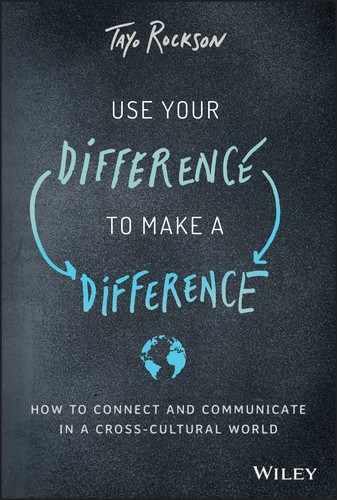28
Applying LORA to Instead, Communicate
Remember that LORA is my acronym for Listen, Observe, Reflect, and Act, the system I developed as a way to apply every concept I explain; what's shown here is for the Instead, Communicate framework. As in earlier chapters, it's both a summary and an action plan, so take out your journals and make note of all these.
Listen
When you communicate, remember to keep in mind how you listen when you educate and how you listen when you are committing to fight against perpetuation. Remember to be an active listener by listening to learn, evaluate, and understand, and listen to the systems around you. Keep all this in mind as you listen to the facts instead of your opinion. Listen for common values to share.
Observe
- Observe moments you find yourself getting defensive, passive-aggressive, and aggressive in communication.
- Observe moments in your communication when your intention does not match the impact and moments when your intention matches impact.
Reflect
- Reflect on moments in the past when you practiced dehumanization in conflict. Why did you do so?
- Reflect on moments you ignored the issue of a conflict and attacked the person. Why did you do so?
- Do you make it an effort to understand the other person's motives and interests?
- Do you put down others while trying to make your point?
- Are you a willing teacher when someone makes a mistake around you? Reflect on whether you create paths to forgive or you are quick to cancel people if they offend you.
Act
- Watch YouTube channels like Jubilee, Cut, Skin Deep, and SoulPancake to gain insight into different perspectives, opposing views, and a whole spectrum of human emotions.
- Don't make being right the goal of your conversations.
- Commit to looking for the root cause in an argument instead of for someone to blame.
- Focus on behaviors people exhibit as opposed to personalities when addressing conflict.
- Commit to naming your emotions regularly and feeling them fully so you don't suppress them.
- Commit to keeping your conversations goal oriented.
- Avoid assumptions by legitimizing and echoing people's feelings back to them.
- Don't be afraid to admit when you are wrong or when you could have done better.
- Regularly communicate the takeaways in your conversations and apply learnings for next time.
- Commit to regularly creating space for open conversation and having open channels to address conflict.
- Know when to walk away from an argument.
The art of communication is the language of leadership. George Bernard Shaw once said, “The single biggest problem in communication is the illusion that it has taken place.” And I couldn't agree more.
